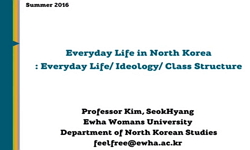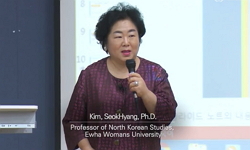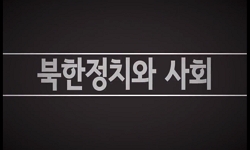This article attempts to conceptualize the idea of independent nuclear deterrence for the Republic of Korea(ROK) in the context of the glowing nuclear capabilities of the Democratic People's Republic of Korea(North Korea), which poses a significant th...
http://chineseinput.net/에서 pinyin(병음)방식으로 중국어를 변환할 수 있습니다.
변환된 중국어를 복사하여 사용하시면 됩니다.
- 中文 을 입력하시려면 zhongwen을 입력하시고 space를누르시면됩니다.
- 北京 을 입력하시려면 beijing을 입력하시고 space를 누르시면 됩니다.
한국의 ‘최소핵심억제’ 개념과 확보전략 = The Concept of [Minimum Essential Deterrence] of the Republic of Korea and the Strategy for Its Realization
한글로보기https://www.riss.kr/link?id=A109022852
- 저자
- 발행기관
- 학술지명
- 권호사항
-
발행연도
2024
-
작성언어
-
- 주제어
-
KDC
300
-
자료형태
학술저널
- 발행기관 URL
-
수록면
208-240(33쪽)
- 제공처
-
0
상세조회 -
0
다운로드
부가정보
다국어 초록 (Multilingual Abstract)
This article attempts to conceptualize the idea of independent nuclear deterrence for the Republic of Korea(ROK) in the context of the glowing nuclear capabilities of the Democratic People's Republic of Korea(North Korea), which poses a significant threat to the ROK.
Firstly, the international norms surrounding the Korean Peninsula, inclusive of bilateral, regional and global agreements or treaties, are examined and assessed from the perspective of the ROK North Korea has seemingly breached most stipulations pertaining to the denuclearization of the Korean Peninsula and the Treaty on the Non-Proliferation of Nuclear Weapons(NP'I). On the basis of the NPT spirit, non-nuclear-weapon states should be protected from the threat of legitimate nuclear-weapon states, and much more strongly from any threat of an unlawful nuclear-weapon state. The ROK(South Korea) is the only country both abided by all rules of nuclear non-proliferation and wholly threatened by unlawful nuclear weapons at the same time. Secondly, some nuclear deterrence theories, encompassing extended deterrence, proportional deterrence, and minimum deterrence, are analyzed in the context of South Korea's unique position While the United States has consistently served as a reliable security ally for South Korea, the development and deployment of North Korea's ICBMs, capable of reaching the US mainland, has dramatically altered the strategic landscape. Now, South Korea is facing a blackmail threat of nuclear destruction from the North, while only one ally's resolve may be fluctuating according to the President's temper, congressional structure, and public opinion of Americans who are also faced with the blackmail.
Lastly, the ''Minimum Essential Deterrence of the Republic of Korea signifies a disciplined and humble deterrence, aiming for minimalistic warheads and specifically targeting the political and economic nucleus and the leadership responsible for deciding and executing a nuclear assault. The ''Minimum Essential Deterrence is a prudent exercise of indigenous right of self-defense, adopts 'no first use' policy and aligns well with the provisions of the NPT. It accepts international control through United Nations Command and IAEA, which would be a first and giant leap towards complete control of nuclear weapons by international organs and the ultimate abolition of them.
동일학술지(권/호) 다른 논문
-
- 한국군사학회
- 김정수
- 2024
-
- 한국군사학회
- 송승종 ( Song Seong-jong )
- 2024
-
적 레이더 역추적을 위한 패시브 레이더 드론 시스템의 활용 방안
- 한국군사학회
- 김한수 ( Kim Han-so )
- 2024
-
타이완해협을 둘러싼 미·중·일·타이완의 군비경쟁 심화 동향 및 한반도에 주는 전략적 함의
- 한국군사학회
- 김덕기 ( Kim Duk-kim )
- 2024




 KISS
KISS






